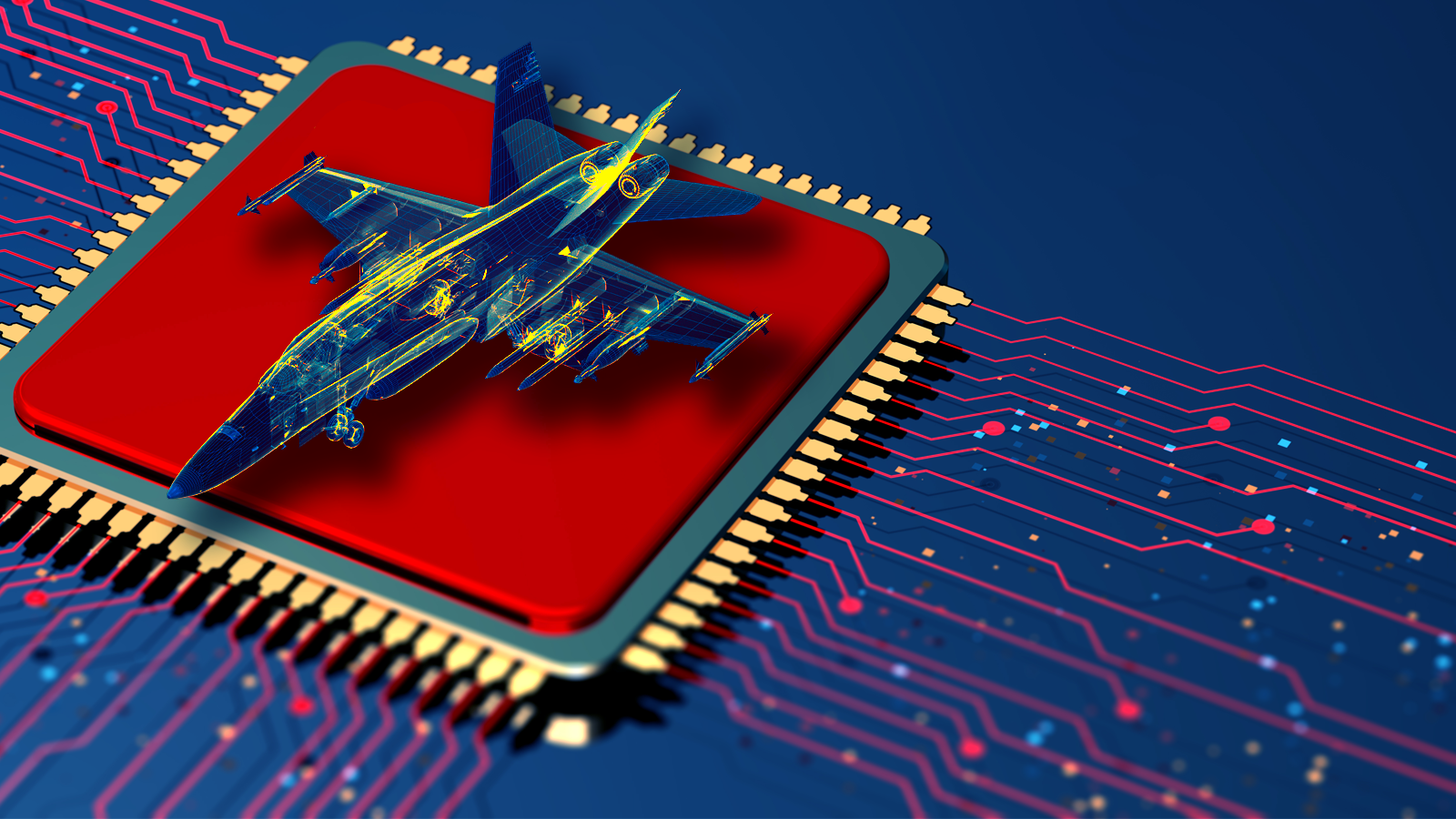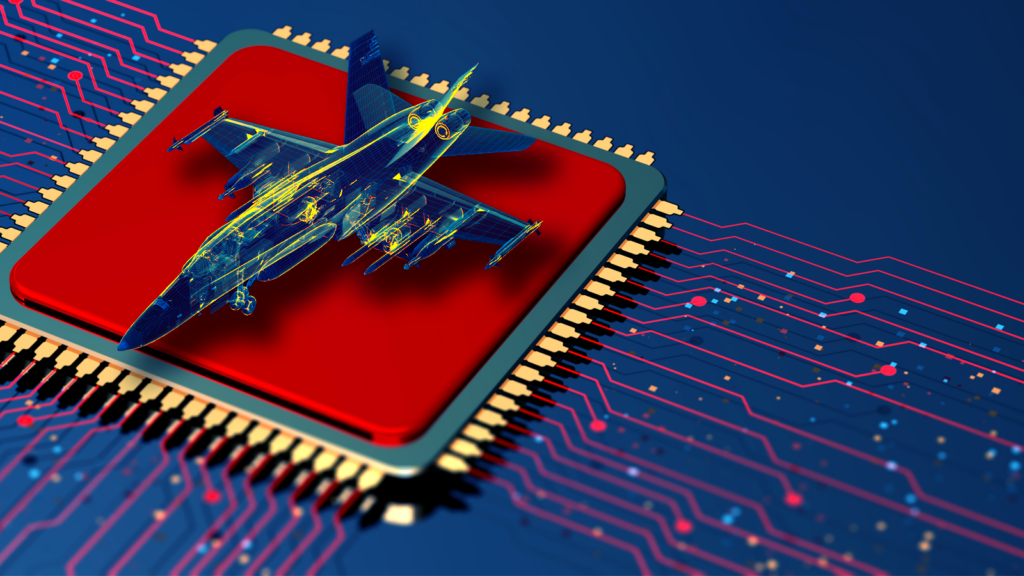Military planes should be built with quantum technology in mind: UK official
The leap to quantum tech will be a "tank versus cavalry, machine guns versus humans moment,” said UK’s Minister of State for the Armed Forces, James Heappey.
By ANDREW WHITEon July 14, 2023 at 4:10 PM
A wireframe fighter jet sits on a computer chip. (Getty images / Breaking Defense graphic)
RIAT 2023 — Military use of quantum computing is still in the theoretical stages, but Western nations need to be designing their next-gen aircraft with the ability to use that technology when its ready, the UK’s Minister of State for the Armed Forces, James Heappey, proclaimed Thursday.
Addressing delegates in his keynote address at the Global Air Chiefs conference in London, Heappey said the “arrival of quantum” would be the “really big threshold” which could unlock the full potential of “AI automation.” And given that jets being flown and designed today will be in service for decades to come, nations need to be planning right now for how to incorporate quantum in the future.
“All of them will be in service when quantum computing arrives so we have to be able to buy aircraft, design aircraft, where the moment that those computers are good to go, you can rip out whatever’s in there and chuck in the quantum computer, because I think that this is a ‘tank versus cavalry,’ ‘machine guns versus humans’ moment,” he said.
See how we're Defining Possible in space.
RELATED: Expand National Quantum Initiative to keep up with China, say officials, experts, legislators
Quantum computing has implications across a host of national security applications, from quickly cracking traditional encryption to building ultra-precise sensors and navigation systems. But while the US government and others have played with the technology for years, no one can say how close it is to practical applications.
Yet, Heappey urged the conference, which featured air force leaders from around the world, that quantum computing would “change warfare in the most profound way”.
“At the moment, that thing that holds us back from being able to understand where a target is in the entire noise of the battlespace, is our ability to crunch the data. Very often it comes back to human judgement,” he said. Quantum computing could process the “vastness of the noise of the ocean; the vastness of the business of the skies; or the vastness of everything that’s happening within a human population on land.
“Quantum computing will be working at a speed we can’t imagine. It will enormously change what our armed forces can do and we’ve got to be ready to spiral onto our machines when that moment comes. And that’s the key,” Heappey said.
The success in any roll-out of quantum technology would depend upon the speed at which armed forces can spiral capability, the minister said, noting such a feat would require a “whole new relationship between the force, industry and science.”
RELATED: New White House directive warns of cryptological risks from quantum computers
More broadly, Heappey stressed that the pace of technology means the old paradigm of how aircraft age no longer applies.
“In the past, you could go into the pavilions at Farnborough Air Show or Fairford and you could be shown a plane, and you could have some confidence that in the life of that plane, it would start off being ahead of its time,” he said. “And in the middle third of its service, it would be of its time. And in the rear third of its service, it would still be competitive with most other air forces and all would be fine.
“But the pace of innovation is now such that within the first third of the service of most of the platforms that we will procure, technology will pass them by. And so I think we have to force ourselves to get into this place where we take intelligence about what our adversaries are doing. And within industry, we have to be speaking to industry about how they would innovate with that intelligence and that science. And then we have to apply military cunning to how we intend to use that system and that spiral loop of intelligence, science, innovation, and military cunning.
“I actually think that’s the battle winning edge of the future,” he continued.
Heappey used the ongoing war in Ukraine as an example, describing how certain electronic warfare assets could typically have a “burn time” of about 10 to 12 weeks.
“You’ll put a UAS into service for the Ukrainians. It’ll take about six weeks for the Russians to figure out why it can fly through their EW screen, and another six weeks for the Russians to figure out how to reprogram their EW or to put something new into their EW platforms to defeat it. And then you go again with that loop in contact between sorties of being able to reprogram, take intelligence, science, innovation and military cunning and to maintain your read constantly.”

Military planes should be built with quantum technology in mind: UK official - Breaking Defense
The leap to quantum tech will be a "tank versus cavalry, machine guns versus humans moment,” said UK’s Minister of State for the Armed Forces, James Heappey.

